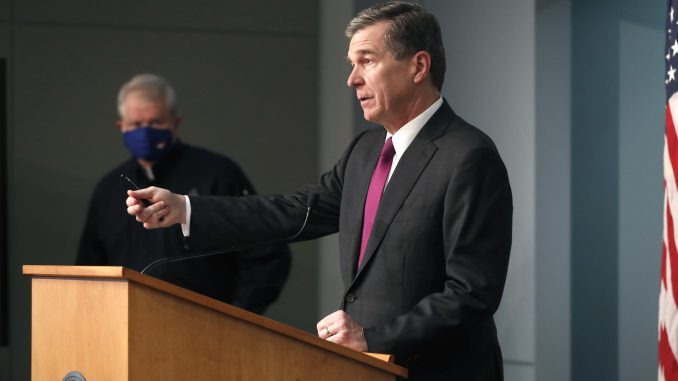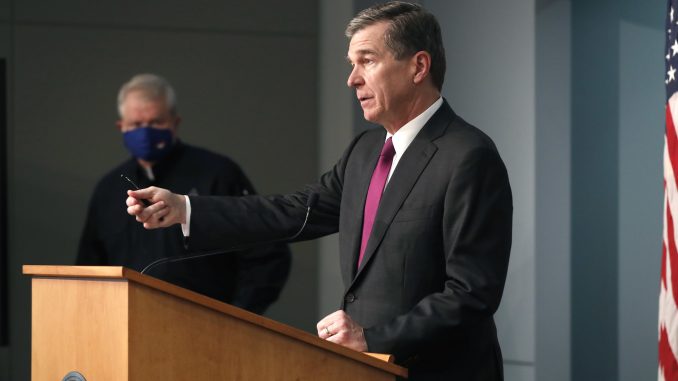

Gov. Roy Cooper vetoes eight bills
RALEIGH – Gov. Roy Cooper vetoed eight bills on Thursday, continuing to increase his total since taking office in 2017.
Cooper vetoed Senate Bill 599 and House Bills 806, 258, and 686, which dealt with reopening of skating rinks, bowling alleys, exercise and fitness facilities, amusement parks and arcades, and the freedom to celebrate the Fourth of July.
“Tying the hands of public health and executive branch officials in times of pandemic is dangerous, especially when case counts and hospitalizations are rising at a concerning rate. As we see in other states with surging COVID-19 case counts, state and local officials must be able to take swift action during this emergency to prevent a surge of patients from overwhelming hospitals and endangering the lives of North Carolinians,” Cooper said in a statement about some of the vetoes.
Cooper said bowling alleys and skating rinks, among the others listed, exhibit many of the risk factors for COVID-19 transmission under the best available scientific and medical data.
“Opening these higher-risk facilities would spread COVID-19 and endanger the state’s flexibility to open the public schools. Given the rapidly evolving nature of this pandemic, executive officials are best positioned to make emergency determinations about public health,” Cooper continued.
Gov. Cooper also vetoed Senate Bill 105, which sought to clarify the Emergency Management Act and the requirement for concurrence of the Council of State. Cooper said of this bill, “The Emergency Management Act clearly provides the governor with statutory authority to direct the state’s response to a public health emergency that could affect the entire state’s population” said Cooper of the bill.
He continued, “Placing additional bureaucratic and administrative obligations on the declaration of a state of emergency is a substantial change in the law, frustrates executive branch officials’ ability to quickly and efficiently respond to such an emergency by requiring the concurrence of officials with limited involvement in managing the response, and would risk diverting focus from responding to such an emergency.”
On his veto of House Bill 652, Cooper said, “This bill allows guns on school property, which threatens the safety of students and teachers.”
The measure passed by bipartisan votes of 33-14 in the Senate and 77-38 in the House.
House Bill 652 allows law-abiding citizens who hold a concealed handgun permit to carry a handgun to defend themselves and their loved ones when attending religious worship taking place on private property that is both a school and place of worship if it does not prohibit firearms, according to the NRA Institute for Legislative Action.
The NRA-ILA supported the bill, which was similar to a bill in Texas that allowed a citizen to defend a congregation from an attack last year. The bill also contained a provision allowing sheriffs to accept a refresher course for lapsed concealed carry permits.
Gov. Cooper also vetoed two bills regarding policy at the N.C. Department of Health and Human Services and the Department of Social Services, calling both overreach from the legislature.
The governor also signed five bills, containing funding for COVID-19 testing and tracing, Conner’s Law to protect families of officers murdered in the line of duty, and military occupational licensing and Medicaid funding.



